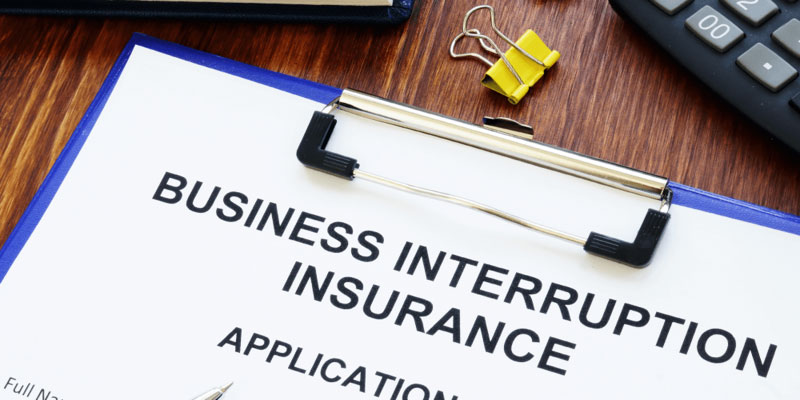
In the event of an unforeseen disruption to business operations, the financial losses incurred by the company could be covered by purchasing business interruption insurance. Natural catastrophes, fires, power outages, and other catastrophic events are only a few potential causes of such disruptions. Any time a company disrupts regular activities, it can lose money through lost sales and additional interruption-related costs. In the event of a disaster, business interruption insurance can assist in covering expenses like missed revenue, rent, and staff pay so that the company can get back on its feet. In the event of a disruption to business operations, the financial burden of these losses can be devastating for a small company if the owner does not have business interruption insurance. A business can recover from these types of failures with the help of business interruption insurance.
How To Understand Insurance For Business Interruptions
In the event of a significant disruption to a company's operations, financial damages could be mitigated with the help of business interruption insurance. While this protection is often bundled with a more comprehensive property insurance policy, it is also available as a stand-alone policy. Business interruption insurance covers lost revenue, operating expenditures, and other costs connected with getting the business back up and running.
Types Of Business Interruption Insurance Coverage
Companies can tailor their business interruption insurance policies to their unique demands and risks by selecting various policies. Among these are:
Gross Earnings Coverage
Coverage of this sort safeguards against financial losses incurred due to an unexpected shutdown of operations. It compensates the company for the time when it earned less money than it had hoped to.
Additional Expenditure Coverage
This insurance can cover extra costs incurred by a company during an interruption period. Any expenses incurred to keep the business running through the disruption, such as moving charges, temporary office rentals, etc.
Coverage For Contingent Business Interruption
Coverage of this sort safeguards enterprises that must rely on outside parties for services or resources. Losses due to interruptions in the activities of these outside vendors or business associates are compensated for.
Civil Authority Coverage
This insurance can protect financial losses incurred due to government-mandated shutdowns or limits on corporate activities. It compensates for the closure or restriction's impact on income and any additional costs incurred.
Coverage For Dependent Property
When a company's operations depend on a single building or location, it is essential to have this coverage in place. As a result of a disaster, you won't have to worry about paying for any repairs to this property or location.
Benefits Of Business Interruption Insurance
Having the protection of business interruption insurance can help in many ways. Among these are:
Financial Protection
Insurance against business interruption is a safety net for companies in the event of a significant disruption. It can assist companies in compensating for revenue drops, increased operating costs, and other start-up expenses.
Peace Of Mind

Businesses and their stakeholders can rest easy knowing they are protected by business interruption insurance. They needn't worry about the company going out of business if there are any brief disruptions.
Competitive Advantage
Evidence shows businesses that carry business interruption insurance enjoy a competitive advantage. It displays the company's readiness for and ability to recover from unforeseen events.
Faster Recovery
When a company has a disruption, business interruption insurance can assist in getting it back up and running as soon as possible by covering the costs associated with the restoration process.
Reduced Risk
In the case of an unexpected catastrophe that disrupts a company's operations and results in significant financial losses, business interruption insurance can help mitigate these effects.
Factors To Consider When Purchasing Business Interruption Insurance
Several issues must be thought through before a company can decide to obtain business interruption insurance. Among these are:
Risk Assessment
Companies must evaluate their exposure to disruption and losses and then decide what insurance coverage they need.
Policy Limits
The insurance limitations of a business should be carefully considered to guarantee sufficient protection in the case of a significant disruption.
Exclusions
Businesses need to study the exclusions in their insurance policies to learn more about what is not covered.
Waiting Period
There is usually a grace period before coverage under a policy for business interruption begins. Companies should ensure they have enough money to offset losses during this payment pause.
Premiums
While deciding whether or not to purchase business interruption insurance, companies should take premium costs into account. While it's understandable that companies would prefer to save money wherever possible, they should always maintain proper coverage for cost savings.
The Reputation Of The Insurance Company

When choosing an insurance provider, businesses should look into its history to ensure it is reliable and has a good track record of paying timely claims.
Conclusion
There are many different types of insurance, but one of the most crucial is business interruption insurance, which can protect a company's finances in the event of a significant disruption. The only available options are gross earnings coverage, additional expense coverage, contingent business interruption coverage, civil authority coverage, and dependent property coverage. When deciding whether or not to get business interruption insurance, companies should seriously consider the likelihood of disruption and the criteria mentioned above. With sufficient insurance, businesses may lessen the financial toll of setbacks and get back on their feet more quickly, lowering their overall risk and giving owners and stakeholders some much-needed peace of mind.



